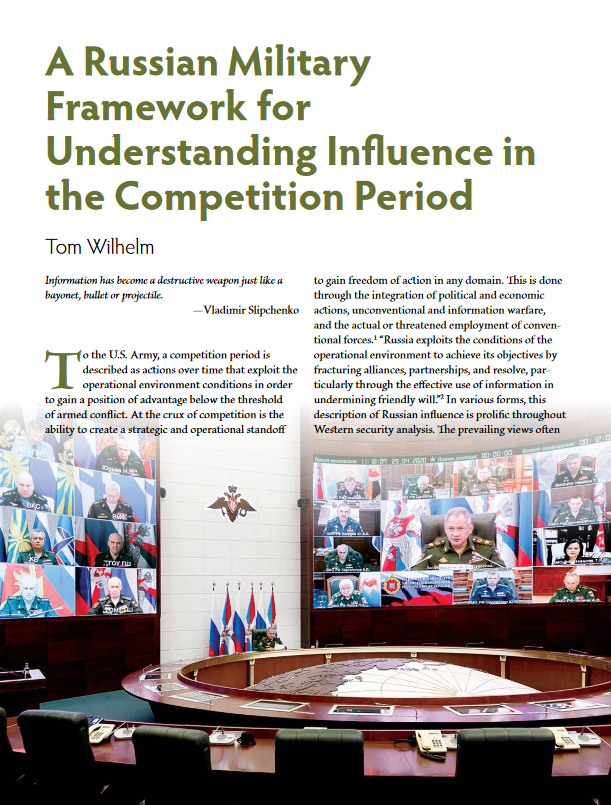(Click image to download brief.)
To the U.S. Army, a competition period is described as actions over time that exploit the operational environment conditions in order to gain a position of advantage below the threshold of armed conflict. At the crux of competition is the ability to create a strategic and operational standoff to gain freedom of action in any domain. This is done through the integration of political and economic actions, unconventional and information warfare, and the actual or threatened employment of conventional forces. “Russia exploits the conditions of the operational environment to achieve its objectives by fracturing alliances, partnerships, and resolve, particularly through the effective use of information in undermining friendly will.” In various forms, this description of Russian influence is prolific throughout Western security analysis. The prevailing views often include the notion that much of Russian influence over events is planned and orchestrated. This is certainly true in many instances; however, identifying the wiring of Russian influence can be difficult as it can not only come from planned operations but also from standard geopolitical practice, spontaneous civic activities, and many other actions and events that contribute to achieving Russian objectives.

